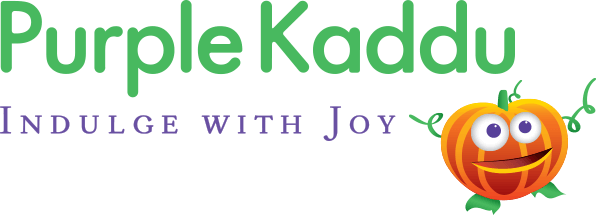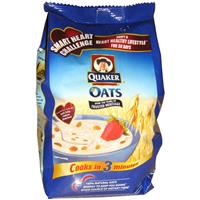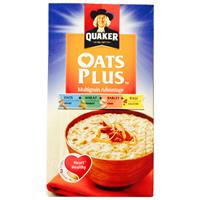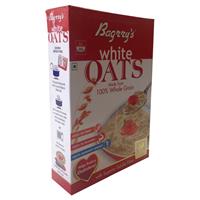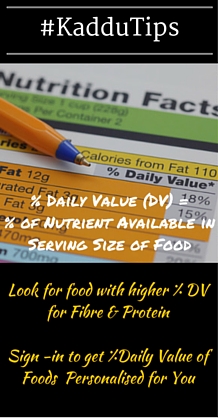
Saffola Oats Veggie Twist
Products in ‘Cereals & Muesli’ category range from 2.5 - 5

Current Product

- Fibre SourceProduct with decent amount of Dietary Fibre (5%-10% of day's recommended intake) is better than a similar one with zero or negligible amount of fibre) - at least it's a start!Packaged foods generally do not have Dietary fibre so a product with some amount of dietary fibre is always welcome.Fibre is not a nutrient but plays a key role in managing your body regularities - Bowel movement - Keeping constipation at bay, a control on Blood Sugar spike and check on blood cholesterol.However, follow the principle of balance and don't go overboard by eating only fibre rich food.
- Food Sensitivity Alert for MSGMonosodium glutamate (MSG) is the sodium salt of the common amino acid i.e. Glutamic acid, popular for its usage as flavouring agent in Asian Cooking.This glutamate salt is also found naturally in various foods such as tomatoes and cheese as well as ingredients such as hydrolyzed vegetable protein, hydrolysed groundnut protein, autolyzed yeast, hydrolyzed yeast, yeast extract, soy extracts, and protein isolate.Some people are sensitive to MSG having adverse effects such as headache, depression, etc. on regular consumption of this salt. Indian law requires that foods containing Added MSG list it in the ingredient panel on the packaging with the warning that it should not be consumed by infants below 12 months. However, if ingredients that have naturally occurring MSG, are added to the product then the product may not specify in regards to its presence.Pregnant & Lactating women & Infants should avoid Products containing MSG .
- High in Saturated FatSaturated Fats are often termed as the Bad Fat as excess consumption of these can lead to increase in the production of high cholesterol, atherosclerosis (thickening of artery walls) and strokes.
On the other hand, there are recent reports that Saturated Fats may not be all bad.Saturated Fats is not only synthesised by the body as part of metabolism but also makes it way in your diet through various raw ingredientsThus, you should limit eating food with added Saturated Fat. - Highly Processed!Additives are added to the packaged foods for different reasons varying from increasing shelf life, to provide flavour and texture, increasing nutrition quality or required to manufacture some types of food.One of the ways to determine the degree of Processing is the number of additives you find in the ingredient list. The higher the number of additives greater is the degree of processing. Additives can be identified by looking for ingredients that begin with 'E' and have a number in them.It is generally recommended that food that is closer to nature is better hence it is better to choose food products with lesser number of additives.
Disclaimer:Product Analysis is based on general practices in the field of Nutrition. Please check with or consult a qualified and licensed medical professional for its suitability to you.
